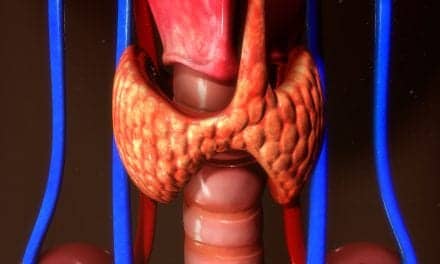The first patient has been dosed in a Phase 2 clinical trial evaluating AD109, Apnimed’s first-in-class oral pharmaceutical under development for the treatment of obstructive sleep apnea (OSA).
“There is a clear unmet need for an approach that addresses the underlying cause of OSA,” says Larry Miller, MD, Apnimed CEO, in a release. “Evidence from earlier proof-of-concept studies demonstrated the potential of our oral therapy as an option for the treatment of OSA. We anticipate data from this Phase 2 study in the first half of 2021 and plan to move forward into a Phase 3 registrational study in 2021.”
AD109 combines a selective norepinephrine reuptake inhibitor (atomoxetine) with a novel new chemical entity (NCE)—a selective antimuscarinic (aroxybutynin). Proof-of-concept for the AD109 program was demonstrated by Apnimed in a Phase 2, parallel group dose-finding study of the combination of atomoxetine and racemic oxybutynin. That study provided evidence of safety and efficacy in the treatment of OSA with a norepinephrine reuptake inhibitor (NRI) + antimuscarinic combination in 140 patient—indicating that a pharmacologic approach could treat the underlying pathophysiology of OSA. AD109 was safe and well tolerated, with no drug-related adverse events, and had a favorable pharmacokinetic (PK) profile of aroxybutynin, paving the way for this new Phase 2 study.
[RELATED: Treating Sleep Apnea with Pills Instead of Machines]
The Phase 2 study is a randomized, double-blind, placebo-controlled, 4-period, single-dose crossover factorial study in patients with OSA. This factorial study is designed to demonstrate that both atomoxetine and R-oxybutynin contribute to the efficacy of AD109 in OSA. A total of 48 participants will be enrolled. At bedtime during 4 overnight periods, each participant will receive a single dose of AD109, the individual components that make up AD109 (aroxybutynin and atomoxetine), and placebo.
The primary endpoint of the study is change in the apnea-hypopnea index (AHI), an index used to indicate the severity of sleep apnea, following treatment with AD109 as compared to the other three study treatments. Apnimed will also conduct a 4-week open-label extension designed to confirm and extend safety and efficacy findings from the first portion of the study.
AD109 targets the neurologic control and facilitates the activation of the upper airway dilator muscles to maintain an open airway during sleep. AD109 is dosed once-daily at bedtime, designed to treat OSA patients across a broad spectrum of disease severity.



